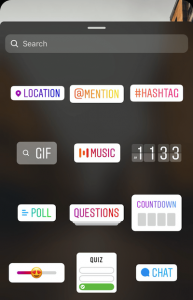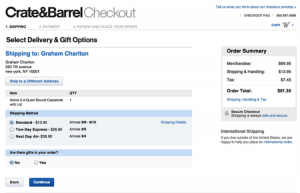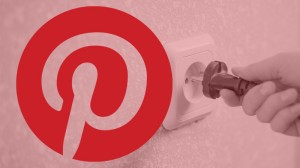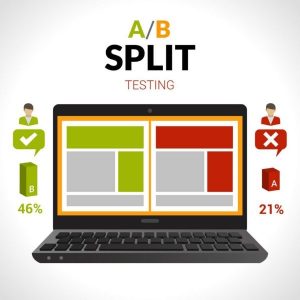Settle in eCommerce heroes, we have some expert eCommerce Instagram marketing tips just for you!
With over a billion users with a 1.4 billion engagement rate on Instagram ads, Instagram is a powerful way to send more targeted traffic to your store and increase your conversion rates. In fact, do you know that Instagram ads result in five times more engagement than Facebook?
In short, if you’re not already widely investing in Instagram or taking the time to optimize your Instagram content strategy and ads for peak performance, you could be missing out on a lot of product sales.
In this full guide, we will give you all the eCommerce Instagram Marketing tips you need to harness the power of Instagram. Not only to bring more shoppers to your online store, but to convert them.
Ready to take your Instagram marketing to the next level? Let’s jump right in!
1. Optimize Your Instagram Bio and Account for Shoppers and SEO [Beginner]
The first Instagram marketing tip we will look at is bio and account optimization. Although this is super simple, it is often overlooked by even the most experienced online sellers.
Optimizing Your Instagram Business Account for SEO
Does your Instagram bio tell your potential shoppers what problems your brand solves? Have you included a call to action and a link? Is your main keyword and marketing hashtag included in your description? Are you updating your bio to reflect industry and market changes and trends?
![12 Expert Instagram Marketing Tips for eCommerce [Full Guide] 12 Expert Instagram Marketing Tips for eCommerce [Full Guide]](https://www.onlinesalesguidetip.com/wp-content/uploads/2020/05/01-12-Expert-Instagram-Marketing-Tips-for-eCommerce-Full-Guide.jpg)
If you answered no to any of these questions, a quick review and edit will help you upgrade your store’s Instagram searchability and bring more eyes to your account and shop.
You can read more about how to optimize your Instagram for SEO, here.
Optimizing Your Instagram Business Account for Shoppers
How your business account looks, matters. Let’s say you’re running an Instagram Shopping ad and you reach a new potential customer who isn’t already familiar with your brand. There is a big chance they are going to click to your account to see what you’re all about and if your account page doesn’t give a trustworthy impression or aesthetically doesn’t match the niche you’re selling in, you will lose them.
Not only should your account bio be optimized as outlined above, but your account content and story highlights should line with your eCommerce branding. Here’s a good example from EnvyStylz, who uses a robust multi-channel strategy, including Instagram, to increase their sales by 470% – you can find out how here.
![12 Expert Instagram Marketing Tips for eCommerce [Full Guide] 12 Expert Instagram Marketing Tips for eCommerce [Full Guide]](https://www.onlinesalesguidetip.com/wp-content/uploads/2020/05/02-12-Expert-Instagram-Marketing-Tips-for-eCommerce-Full-Guide.jpg)
As you can see at first glance, their profile ‘looks the part’ of their brand. From their bio and story highlight bookmarks to their account content. Which brings us to our next eCommerce Instagram marketing tip!
2. Put Effort into Organic Content Strategy and Engagement [Intermediate]
As we mentioned, your Instagram organic content is an important part of your overall branding strategy. However, that’s not the only benefit – this will also help you increase followers and keeping these fans engaged with your brand.
A good Instagram content strategy will include a variety of content types, such as the visual eye-candy of your products, quotes that speak to your audience’s emotions and UGC from happy shoppers. It should also vary in post types such as Instagram images, videos and stories that engage your followers or potential customers to interact with your content.
Here are some tips on how you build a consistent Instagram aesthetic for your brand account:
- Be consistent
- Pick your color scheme
- Keep lighting focus consistent
- Curate and use UGC
- Use content spacing
- Put effort into extending branding to your Story highlights
- Keep it authentic
An eCommerce brand totally winning at all of the above is Happy Socks.
![12 Expert Instagram Marketing Tips for eCommerce [Full Guide] 12 Expert Instagram Marketing Tips for eCommerce [Full Guide]](https://www.onlinesalesguidetip.com/wp-content/uploads/2020/05/03-12-Expert-Instagram-Marketing-Tips-for-eCommerce-Full-Guide.jpg)
![12 Expert Instagram Marketing Tips for eCommerce [Full Guide] 12 Expert Instagram Marketing Tips for eCommerce [Full Guide]](https://www.onlinesalesguidetip.com/wp-content/uploads/2020/05/04-12-Expert-Instagram-Marketing-Tips-for-eCommerce-Full-Guide.jpg)
As you can see, they utilize a variety of types of posts so that their content strategy is diverse. This includes images, video, Shopping, Carousel, and Instagram TV content that share a variety of content types such as UGC, product highlights, sales, Gifs, long and short video forms and more! We will get into more detail on these types of posts a little later! However, in the meantime, here are some tips on the types of images or videos that have success on Instagram:
- Lifestyle product photos
- Behind-the-scenes photos showing how your products are made
- Gifs and memes
- Video posts
- Shared customer content
Additionally important, an eCommerce brand should always make time to engage back with comments, DMs and reactions. Engaging with followers is not only a way you can talk directly to potential shoppers and show off your brand’s ‘human’ side, but helps you quickly answer reservations or questions they might have about buying your products before they head over to your store.
And what makes engagement on account content extra important?
If you want your followers and Instagram hashtag browsers to see more of your content, such as new product launch posts or new season sales, engagement is key. This is because engagement is a big part of how Instagram’s algorithm determines which content is seen first in users’ feeds.
Here’s a breakdown of what the Instagram algorithm is based on, from Later.
![12 Expert Instagram Marketing Tips for eCommerce [Full Guide] 12 Expert Instagram Marketing Tips for eCommerce [Full Guide]](https://www.onlinesalesguidetip.com/wp-content/uploads/2020/05/05-12-Expert-Instagram-Marketing-Tips-for-eCommerce-Full-Guide.jpg)
Here are two tips on how you can ensure your content strategy is geared to your audience, and therefore, more engagement:
- Take a look at your closest competitors’ Instagram accounts and see what similar markets are engaging with.
- Use your Instagram analytics to see what content is winning in terms of engagement and expand on these strategies.
3. Make All Your Posts Shoppable With Product Tags [Intermediate]
![12 Expert Instagram Marketing Tips for eCommerce [Full Guide] 12 Expert Instagram Marketing Tips for eCommerce [Full Guide]](https://www.onlinesalesguidetip.com/wp-content/uploads/2020/05/06-12-Expert-Instagram-Marketing-Tips-for-eCommerce-Full-Guide.jpg)
If you can check all the boxes from Facebook, below, then you should be tagging your products in your Instagram account!
![12 Expert Instagram Marketing Tips for eCommerce [Full Guide] 12 Expert Instagram Marketing Tips for eCommerce [Full Guide]](https://www.onlinesalesguidetip.com/wp-content/uploads/2020/05/07-12-Expert-Instagram-Marketing-Tips-for-eCommerce-Full-Guide.jpg)
Once set up, you can tag any product in your image posts or stories. More importantly, you can then also turn select tagged posts with good engagement into Instagram ads to boost product sales.
![12 Expert Instagram Marketing Tips for eCommerce [Full Guide] 12 Expert Instagram Marketing Tips for eCommerce [Full Guide]](https://www.onlinesalesguidetip.com/wp-content/uploads/2020/05/08-12-Expert-Instagram-Marketing-Tips-for-eCommerce-Full-Guide.png)
![12 Expert Instagram Marketing Tips for eCommerce [Full Guide] 12 Expert Instagram Marketing Tips for eCommerce [Full Guide]](https://www.onlinesalesguidetip.com/wp-content/uploads/2020/05/09-12-Expert-Instagram-Marketing-Tips-for-eCommerce-Full-Guide.png)
Newbie Tip: If you’re a little newer to Instagram, here is how you can get this done, in seven steps, and the available markets where shopping tags are available.
![12 Expert Instagram Marketing Tips for eCommerce [Full Guide] 12 Expert Instagram Marketing Tips for eCommerce [Full Guide]](https://www.onlinesalesguidetip.com/wp-content/uploads/2020/05/10-12-Expert-Instagram-Marketing-Tips-for-eCommerce-Full-Guide.jpg)
![12 Expert Instagram Marketing Tips for eCommerce [Full Guide] 12 Expert Instagram Marketing Tips for eCommerce [Full Guide]](https://www.onlinesalesguidetip.com/wp-content/uploads/2020/05/11-12-Expert-Instagram-Marketing-Tips-for-eCommerce-Full-Guide.jpg)
4. Go All Out with Instagram Product Photography and Videography [Beginner & Intermediate]
Whether you’re preparing content for your account followers or ads, when it comes to Instagram, visuals matter. This doesn’t mean you need to forgo natural behind-the-scenes and UGC posts for content and ads, but you should be including eye-candy visuals of your products, as well.
![12 Expert Instagram Marketing Tips for eCommerce [Full Guide] 12 Expert Instagram Marketing Tips for eCommerce [Full Guide]](https://www.onlinesalesguidetip.com/wp-content/uploads/2020/05/12-Expert-Instagram-Marketing-Tips-for-eCommerce-Full-Guide.jpg)
And remember the Happy Socks content example above? Here it is again – as you can see, they invest in a variety of content, including those quality shots to grab the attention of potential customers.
![12 Expert Instagram Marketing Tips for eCommerce [Full Guide] 12 Expert Instagram Marketing Tips for eCommerce [Full Guide]](https://www.onlinesalesguidetip.com/wp-content/uploads/2020/05/13-12-Expert-Instagram-Marketing-Tips-for-eCommerce-Full-Guide.jpg)
When it comes to lifestyle and white-background photography for Instagram eCommerce, there are some crucial must-do’s to take your Instagram marketing to the next level. Here are two to get you started:
- Let Instagram product images and videos tell a story. Does your content reflect your brand voice and market? If you are targeting hikers, walkers and adventurers, show outdoorsy images that tell the story of adventure and of being outdoors.
- Follow your brand themes and voice throughout your images and videos as well as in your business account! When potential shoppers click on your Instagram product photo and go to your store, does the photo match the aesthetic of your store? Consistency is vital in terms of feel, backgrounds, product layouts and tone in your descriptions and headlines!
![12 Expert Instagram Marketing Tips for eCommerce [Full Guide] 12 Expert Instagram Marketing Tips for eCommerce [Full Guide]](https://www.onlinesalesguidetip.com/wp-content/uploads/2020/05/14-12-Expert-Instagram-Marketing-Tips-for-eCommerce-Full-Guide.jpg)
5. Grow Your Brand Followers the Right Way [Beginner & Intermediate]
The next top must-follow Instagram marketing tip is an important one; one that even a lot of established online store owners get wrong. Here is the biggest unkept secret when it comes to social: It is not about how many followers you have, but the quality of those followers. The thing is, it is better to have 1,000 highly engaged followers than 100,000 unengaged followers who don’t fall within your target shopper demographics. Why? Because as we mentioned, engagement is key and content marketing takes time, effort and money, so, therefore, you want to be sure you are reaching customers and potential shoppers who are more likely to shop with your brand.
In a nutshell, the biggest tip I have for followers is this: Buying followers with the help of follower apps and services is not the way you want to go. You want to grow your followers in an authentic, practical way that services your brand and also instills trust and engagement – both of which can boost sales.
Here are some tips on how you can do just that!
- Engage with niche-related content, as your brand. Above all else, it’s important to remember that Instagram is a social media platform. Therefore it’s imperative for your brand to be human in content and its engagement. Commenting, liking and sharing content within your niche can help you find more potential customers and followers.
- Approach your most active brand followers, those who have a good number of engaged followers themselves, and offer incentives for mentions. This is essentially influencer marketing at the micro, niche level.
- Collaborate with a brand that markets in the same niche that aren’t your competition. This can be done with combined content or marketing initiatives where you both share brands with followers, widening your reach to more potential customers.
- Be strategic with your hashtags! Not only should you be including your brand hashtag, but other related hashtags as well. However, it’s important not to put hashtags just because they are popular. If they aren’t relevant to your content or product, they will just have the opposite effect by making your brand account look spammy.
- Use store traffic and incentives to grow your social media follower lists. Apps like Coupon Pop will help you incentivize website traffic to follow your Instagram account – and boost sales – with exclusive discounts.
![12 Expert Instagram Marketing Tips for eCommerce [Full Guide] 12 Expert Instagram Marketing Tips for eCommerce [Full Guide]](https://www.onlinesalesguidetip.com/wp-content/uploads/2020/05/15-12-Expert-Instagram-Marketing-Tips-for-eCommerce-Full-Guide.jpg)
Now that we have shown you how to optimize your Instagram account and build your account content strategy, let’s dig deeper into the most important marketing aspects, your ads.
6. Choose the Right Instagram Ad Format for Your Brand [Intermediate]
The first step in ensuring that you are building a successful Instagram marketing stream for eCommerce is ensuring you are using the right types of ads. Each Instagram ad format offers different placement options (stories, feed, and Explore) and will be compatible with its own set of objectives.
![12 Expert Instagram Marketing Tips for eCommerce [Full Guide] 12 Expert Instagram Marketing Tips for eCommerce [Full Guide]](https://www.onlinesalesguidetip.com/wp-content/uploads/2020/05/16-12-Expert-Instagram-Marketing-Tips-for-eCommerce-Full-Guide.png)
For new stores and advertisers, start with image and Stories posts. Gradually you will want to test, and then add, video, Carousel and Experience ads to ensure you find the optimum formats for your objectives and target audiences.
Here is a quick breakdown of each Instagram ad format online sellers should be testing:
Instagram Stories Ads for eCommerce
These are photo or video ads that are displayed in users’ Story feeds. They should have a 9:16 aspect ratio to fit the full-screen vertical format of Stories that can be used for reach, traffic, conversions and lead generation objectives. Here are a few examples I had in my own feed today:
![12 Expert Instagram Marketing Tips for eCommerce [Full Guide] 12 Expert Instagram Marketing Tips for eCommerce [Full Guide]](https://www.onlinesalesguidetip.com/wp-content/uploads/2020/05/17-12-Expert-Instagram-Marketing-Tips-for-eCommerce-Full-Guide.jpg)
![12 Expert Instagram Marketing Tips for eCommerce [Full Guide] 12 Expert Instagram Marketing Tips for eCommerce [Full Guide]](https://www.onlinesalesguidetip.com/wp-content/uploads/2020/05/18-12-Expert-Instagram-Marketing-Tips-for-eCommerce-Full-Guide.jpg)
![12 Expert Instagram Marketing Tips for eCommerce [Full Guide] 12 Expert Instagram Marketing Tips for eCommerce [Full Guide]](https://www.onlinesalesguidetip.com/wp-content/uploads/2020/05/19-12-Expert-Instagram-Marketing-Tips-for-eCommerce-Full-Guide.jpg)
Pro Tip: Here are some best practices we recommend to ensure that you are giving your Instagram Stories ads a better chance at success:
- Keep brand front, center and on display.
- Ensure messaging is clear and concise.
- Test text placement for optimal engagement results.
- Make an impact in the first couple of seconds.
Instagram Photo and Video Newsfeed Ads for eCommerce
Placed in the main newsfeed, these are image ads that are supported by most objectives, including reach, traffic, conversions, awareness, engagement, and product catalog sales. Here are some examples of Instagram ads we are currently creating, managing and optimizing on behalf of our merchants:
![12 Expert Instagram Marketing Tips for eCommerce [Full Guide] 12 Expert Instagram Marketing Tips for eCommerce [Full Guide]](https://www.onlinesalesguidetip.com/wp-content/uploads/2020/05/20-12-Expert-Instagram-Marketing-Tips-for-eCommerce-Full-Guide.png)
![12 Expert Instagram Marketing Tips for eCommerce [Full Guide] 12 Expert Instagram Marketing Tips for eCommerce [Full Guide]](https://www.onlinesalesguidetip.com/wp-content/uploads/2020/05/21-12-Expert-Instagram-Marketing-Tips-for-eCommerce-Full-Guide.png)
![12 Expert Instagram Marketing Tips for eCommerce [Full Guide] 12 Expert Instagram Marketing Tips for eCommerce [Full Guide]](https://www.onlinesalesguidetip.com/wp-content/uploads/2020/05/22-12-Expert-Instagram-Marketing-Tips-for-eCommerce-Full-Guide.png)
Instagram Shopping Ads for eCommerce
Turning your tagged, shoppable posts into Instagram ads is an eCommerce must! These ads work with awareness, conversions, engagement, reach and link click objectives and will take your shoppers to the product page of your tags.
Instagram Carousel Feed Ads for eCommerce
Chances are you’re no stranger to Carousel ads if you’ve been advertising on Facebook! This format is effective for online sellers wanting to highlight a few related products or more than one image of one product – in one single ad. Alternatively, you could use this format to tell a product story.
![12 Expert Instagram Marketing Tips for eCommerce [Full Guide] 12 Expert Instagram Marketing Tips for eCommerce [Full Guide]](https://www.onlinesalesguidetip.com/wp-content/uploads/2020/05/23-12-Expert-Instagram-Marketing-Tips-for-eCommerce-Full-Guide.jpg)
These formats can be used with reach, traffic, conversion, product catalog sales and brand awareness ad objectives.
Instagram Instant Experience Ads for eCommerce
Formally known as Canvas ads, Instant Experiences (IX) ads enable eCommerce markets to create dynamic visual brand and product stories. Here are some examples of Experience ads we are running for our merchants.
![12 Expert Instagram Marketing Tips for eCommerce [Full Guide] 12 Expert Instagram Marketing Tips for eCommerce [Full Guide]](https://www.onlinesalesguidetip.com/wp-content/uploads/2020/05/24-12-Expert-Instagram-Marketing-Tips-for-eCommerce-Full-Guide.png)
![12 Expert Instagram Marketing Tips for eCommerce [Full Guide] 12 Expert Instagram Marketing Tips for eCommerce [Full Guide]](https://www.onlinesalesguidetip.com/wp-content/uploads/2020/05/25-12-Expert-Instagram-Marketing-Tips-for-eCommerce-Full-Guide.png)
![12 Expert Instagram Marketing Tips for eCommerce [Full Guide] 12 Expert Instagram Marketing Tips for eCommerce [Full Guide]](https://www.onlinesalesguidetip.com/wp-content/uploads/2020/05/26-12-Expert-Instagram-Marketing-Tips-for-eCommerce-Full-Guide.png)
This format can be used for store visits, video views, post engagement, reach, traffic and conversions objectives.
Instagram Collection Ads for eCommerce
Collection ads are, in essence, a combination of the best of Instagram Shopping and user experience ads. Supported by catalog sales, traffic and conversions, this Instagram ad type will enable you to offer a collection of products that shoppers can individually click to get to the specific product page.
![12 Expert Instagram Marketing Tips for eCommerce [Full Guide] 12 Expert Instagram Marketing Tips for eCommerce [Full Guide]](https://www.onlinesalesguidetip.com/wp-content/uploads/2020/05/27-12-Expert-Instagram-Marketing-Tips-for-eCommerce-Full-Guide.jpg)
Instagram IGTV Ads for eCommerce
Lastly, let’s look at Instagram’s newest marketing feature, IGTV ads. Although this feature is only being made available to top video creators at the time of writing this, it is definitely a feature intermediate eCommerce sellers need to keep a close eye on. Why? Because it will be a new way in which you can take advantage of Instagram followers – those with a large IGTV following in your niche – by displaying your ads within your content. Think of it as Instagram’s version of TrueView ads.
![12 Expert Instagram Marketing Tips for eCommerce [Full Guide] 12 Expert Instagram Marketing Tips for eCommerce [Full Guide]](https://www.onlinesalesguidetip.com/wp-content/uploads/2020/05/28-12-Expert-Instagram-Marketing-Tips-for-eCommerce-Full-Guide.png)
Pro Tip: As with any PPC campaign, to get the best out of your Instagram ads, you will need to test, monitor and tweak your ads for peak performance. This will ensure that you build a strong Instagram strategy that integrates into your overall Facebook and Google Ads marketing strategy.
–
So, How Do You Choose the Best Instagram Ad Types for Your Marketing Strategy?
Now that you have the full list of Instagram marketing options, let’s look at how you develop your strategy. Here are four steps to get you started:
- First, assess your Instagram marketing goals to see how you need your ads to integrate and feed your overall marketing sales funnel.
- Start with the one ad type best suited for this goal, and test your targeting and creatives before implementing your full budget.
- Add on new ads types as your budgets and content types increase and goals change, one at a time. Not all content types will work for all brands; you want to ensure that you are testing and using the types that suit your products, brand and targeted shopper.
- Constantly watch, optimize and tweak your ads until you have built a strong Instagram marketing strategy that converts. But more on that in our next top eCommerce Instagram marketing tip.
7. Create and Optimize Your Instagram Ads Like a Pro [Intermediate]
According to one study, as many as 72% of Instagram users base buying decisions on content they have seen on Instagram. If that doesn’t prove how powerful Instagram ads can be for online stores, then nothing will. The trick, though, is to ensure that you are creating and optimizing your ads to be successful.
Here are some simple, yet effective, ways you can create and optimize your ads to boost sales:
- Remember, Instagram is a social platform. Your ads should be aimed at humans and should have a friendly, authentic feel to attract the attention of users on their newsfeeds.
- Segment, segment, segment! Creating smaller audiences means more personalized messaging. More personalized messaging means a greater chance of clicks. More clicks means more conversion opportunities. But more on this later!
- Test all your ads first, tweaking artwork, headlines, CTAs and format, until you have a winning campaign.
- Like with all PPC campaigns, don’t underestimate the power of your CTAs and ad copy. You have limited time to make your impression and get that click from your potential, so keep it on point. The best way to do this is to test various ad elements before throwing all your budget into the ring, so to speak.
![12 Expert Instagram Marketing Tips for eCommerce [Full Guide] 12 Expert Instagram Marketing Tips for eCommerce [Full Guide]](https://www.onlinesalesguidetip.com/wp-content/uploads/2020/05/29-12-Expert-Instagram-Marketing-Tips-for-eCommerce-Full-Guide.png)
Pro Budget-Saving Tip: Try testing your ad assets and products organically through your Instagram content feed before putting money into the campaign. Your followers, as we outlined above, will be full of previous customers, engaged users and site visitors – they are the perfect collection of users to test content too before you invest too much on a paid campaign.
8. Take Segmentation to the Next Level
As we touched on briefly in the previous Instagram marketing tip, audience segmentation is vitally important for the success of your campaigns and Instagram content overall. By harnessing the power of Facebook’s audience insights and custom audiences, you can create niche campaigns specifically for Instagram. At the very least, you should include:
- Retargeting ads that remarkets Instagram audiences who are already familiar with your brand or have visited your online store before
- Ads targeting Lookalike customers to find more potential shoppers like your customers on Instagram
- Instagram engagement custom audiences to target people more likely to engage with your Instagram ads
All of the above can, of course, also be divided into smaller segments based on specific demographics or site behavior. Why is this important? Because the more segmentation you have, the more you can speak directly to your potential customer’s needs and thus improve your chances of them buying the product you are selling.
9. Boost Instagram Marketing with Website Content Displays
You may remember that we touched on this Instagram marketing strategy in our Online Store Feedback You’ve Been Waiting For post. Integrating your Instagram feed onto your store will not only highlight your Instagram account, but put lifestyle product photos and reposted UGC front and center. The UGC gives your store a trustworthiness boost while the fun lifestyle photos show your products on your homepage in a more usability context.
Even better, if you use apps like Instagram Shoppable Feed, you can take your site’s Instagram feed a step further and make it shoppable from your homepage.
![12 Expert Instagram Marketing Tips for eCommerce [Full Guide] 12 Expert Instagram Marketing Tips for eCommerce [Full Guide]](https://www.onlinesalesguidetip.com/wp-content/uploads/2020/05/30-12-Expert-Instagram-Marketing-Tips-for-eCommerce-Full-Guide.jpg)
Pro Tip: Looking for more apps and tools to take your Instagram marketing to pro-level? We’ve compiled a comprehensive list of top Instagram tools to help you schedule Instagram posts, create awesome content, manage your account, grow your followers, find influencers, conduct hashtag research, help you sell, and more!
11. Get Clever with Influencer Marketing
Let’s get real, there is a lot of talk about the possible bubble burst of influencer marketing. However, if done correctly, not only can you avoid the ‘burst,’ but it can be highly effective. The secret is in the targeting.
As we said, influencer marketing across all channels can be highly successful, but it’s Instagram that offers something very unique – micro niches. Micro-influencers are those with up to 100,000 followers who are very specific about their niche they post around.
In fact, we would take it a step further and recommend that it’s best to use micro-influencers with fewer than 5,000 followers and go very micro. The key is to study their post engagement. Don’t take our word for it, one study found that micro-influencers (with 1,000 followers) generate 85% higher engagement than macro-influencers (100,000+ followers).
In short, the higher the number of followers, the more likely engagement rates decrease – this makes micro-influencers on the fewer follower side much more valuable. Add to that fact that they generally cost less, are more trusted by their niche followers and that they allow you to tap into very segmented markets – conversion and reach will tend to be higher. It is, therefore, ideal to use a few highly targeted influencers, rather than one big influencer with hundreds of thousands of followers.
How and where to find the right micro-influences for your eCommerce business? Here are four ways you find them!
- Look at your brand’s biggest Instagram fans. Are any of them an influence in their niches? Do they have 1,000 followers?
- Turn to Instagram hashtags. Review popular (for your brand or niche) hashtag posts to find engaged micro-influencers within your niche.
- Use third-party services such as Tribegroup.co that connect you to influencers.
- Reach out to bloggers with small- to medium-sized follower lists who write within your niche and industry and see their Instagram account content and engagement.
![12 Expert Instagram Marketing Tips for eCommerce [Full Guide] 12 Expert Instagram Marketing Tips for eCommerce [Full Guide]](https://www.onlinesalesguidetip.com/wp-content/uploads/2020/05/31-12-Expert-Instagram-Marketing-Tips-for-eCommerce-Full-Guide.jpg)
12. Combine Instagram with Content Marketing Strategies to Boost Marketing Success
Last, but not least, let’s talk about content marketing. To truly be successful with any content platform, you need to use content marketing strategies to highlight more than just your products, but your brand itself. Instagram is no exception. Pivoting your thinking from Instagram ad to content marketing strategy will help you stand out from the crowd so that you’re not just another online seller, filling potential shoppers’ feeds with product shots saying ‘buy me now.’
Instead, you should be putting in the same effort and strategies as you would your eCommerce blog. Here are just some of the ways you can combine content marketing strategies with Instagram marketing for eCommerce success:
Be Playful with Instagram Elements
Don’t be afraid to experiment with geofilters, stickers, drawings and text overlays in your posts and stories. Not only is this a great way to make CTAs stand out, but it shows off your human side and elicits emotion. Also, it doesn’t always have to be about your products. Include some interesting, high-value, entertaining content in there as well! Here are some examples from Hand in My Pocket.
![12 Expert Instagram Marketing Tips for eCommerce [Full Guide] 12 Expert Instagram Marketing Tips for eCommerce [Full Guide]](https://www.onlinesalesguidetip.com/wp-content/uploads/2020/05/32-12-Expert-Instagram-Marketing-Tips-for-eCommerce-Full-Guide.jpg)
![12 Expert Instagram Marketing Tips for eCommerce [Full Guide] 12 Expert Instagram Marketing Tips for eCommerce [Full Guide]](https://www.onlinesalesguidetip.com/wp-content/uploads/2020/05/33-12-Expert-Instagram-Marketing-Tips-for-eCommerce-Full-Guide.jpg)
![12 Expert Instagram Marketing Tips for eCommerce [Full Guide] 12 Expert Instagram Marketing Tips for eCommerce [Full Guide]](https://www.onlinesalesguidetip.com/wp-content/uploads/2020/05/34-12-Expert-Instagram-Marketing-Tips-for-eCommerce-Full-Guide.jpg)
Put Effort into Your Captions
Use your captions for more than just hashtags; tell a story. Now, obviously, there is a time and place for short pithy captions, but there are also times when stories are needed. Take a look at this awesome example from winning online apparel brand, Beautiful Disaster.
They use their captions to share inspiring stories of shoppers and team members, highlighting more than their products, but the ‘tribe’ behind them and what their brand stands for. When it comes to being successful with Instagram, you want to use your captions to ask questions, tell stories, inspire and/or engage with potential customers in a human-to-human way.
Think Outside the Box with Themes
If you’ve been using the same tired white background or flat overlay of your products for all your Instagram content and ads, you’re not using the platform to its full potential. It is also probably costing you clicks, followers and sales. You want to think outside the box, and like with content marketing, you want to ensure that you are appealing to your audience in their language – be it with captions and stickers or in the overall theme of your posts. Here are some themes you can use to take your Instagram marketing up a notch:
- Meet-the-team posts and/or behind-the-scenes stories and videos
- Review highlights
- Takeovers, where you give account access to influencers or brand ambassadors, and let them run your account for a couple of days
- Lifestyle product photos showing your line in real-life settings
- UGC (of course!)
- Contests and/or quizzes and polls
- Fun content topics that your specific audience would find entertaining
Also, don’t forget you can repurpose your eCommerce blog content.
For example, let’s say you sell hair products and have a blog post about ‘10 tips to perfect curls’. Each tip can be used in a single Instagram post with a relevant lifestyle photo of someone curling their hair with your product. You could post these once a week for ten weeks as a ‘tip of the week’ post. That means you can get awesome content pieces from one blog post! The possibilities here are endless.
—
There you have it, 12 expert Instagram marketing tips for eCommerce. Still have Instagram ads and marketing questions? Post them in the comments section below!
Digital & Social Articles on Business 2 Community
(74)
Report Post
 Thank you Autumn for being you! Love you girly! Give this birthday girl a follow: @autumnxnoir #PerfectlyImperfect #BeautifulDisaster #BeautifulDisasterClothing
Thank you Autumn for being you! Love you girly! Give this birthday girl a follow: @autumnxnoir #PerfectlyImperfect #BeautifulDisaster #BeautifulDisasterClothing







